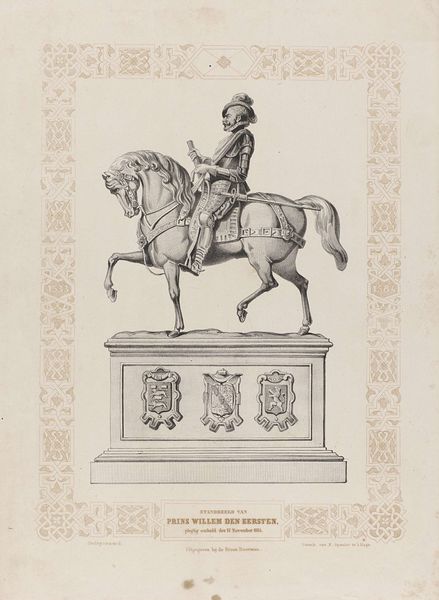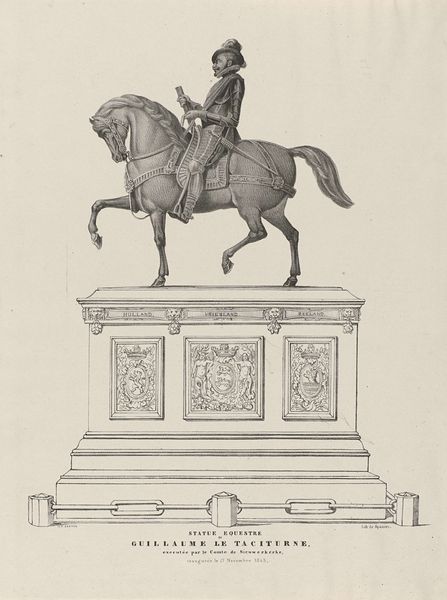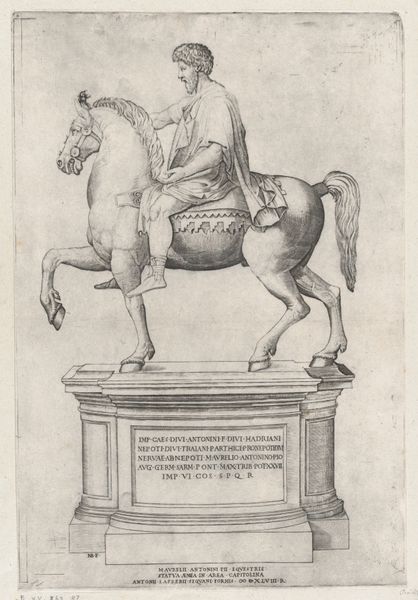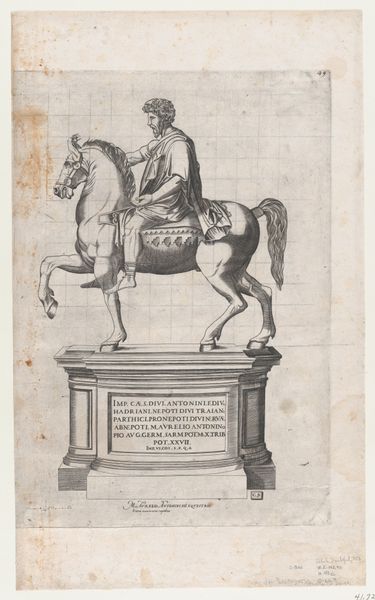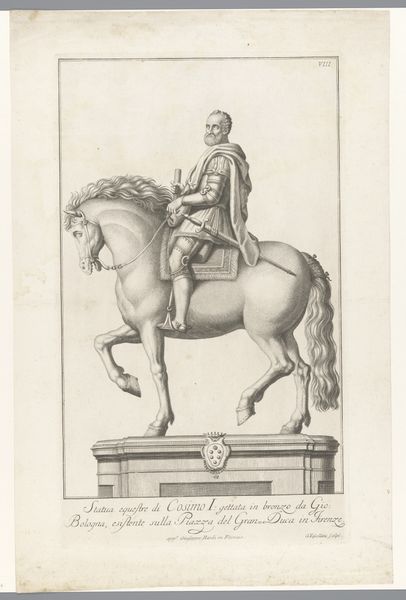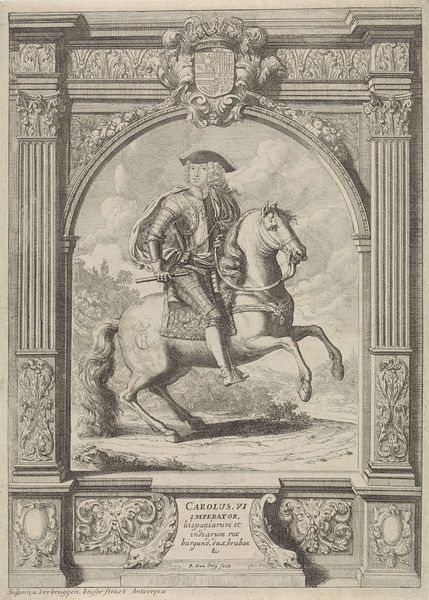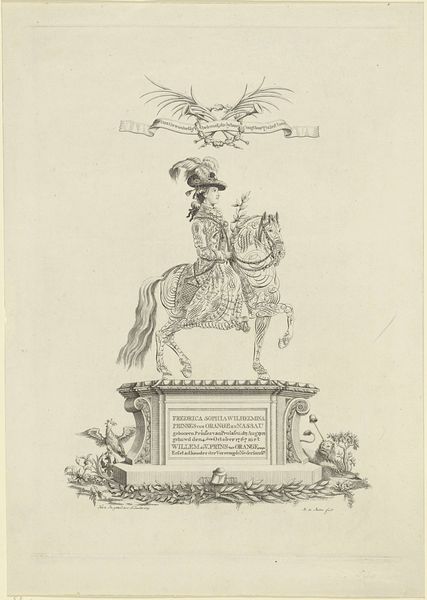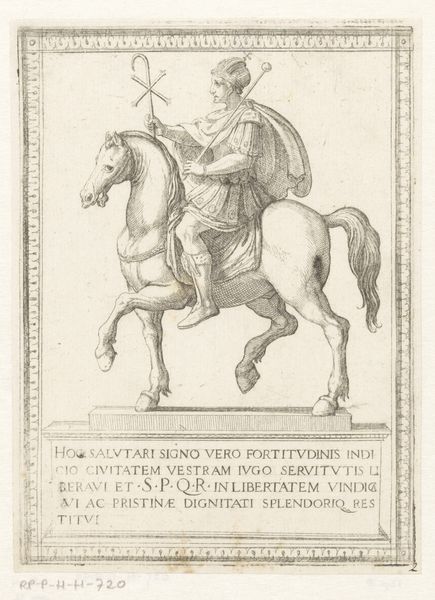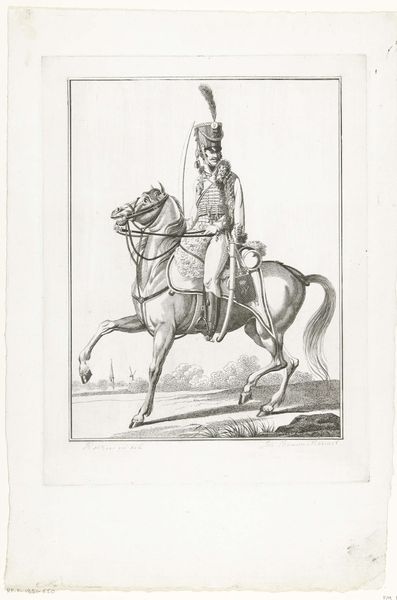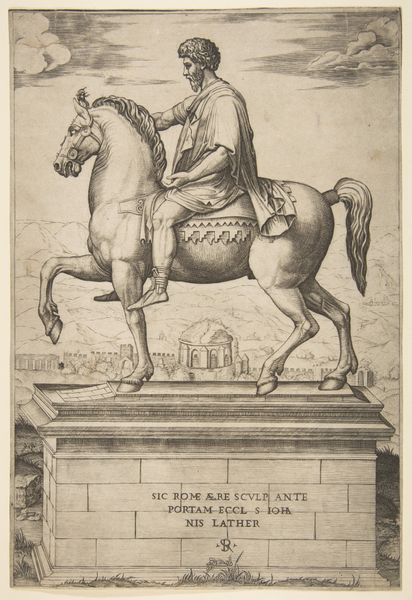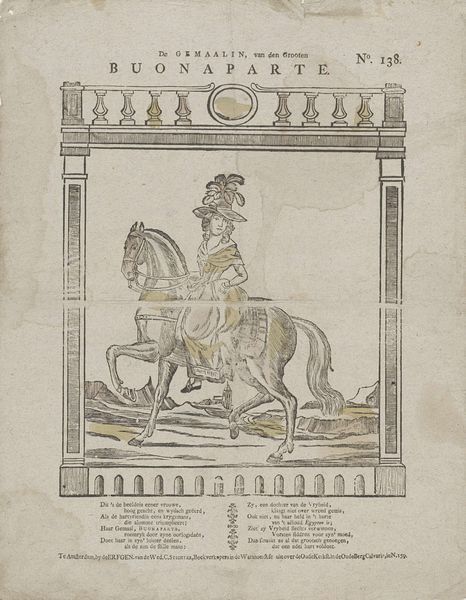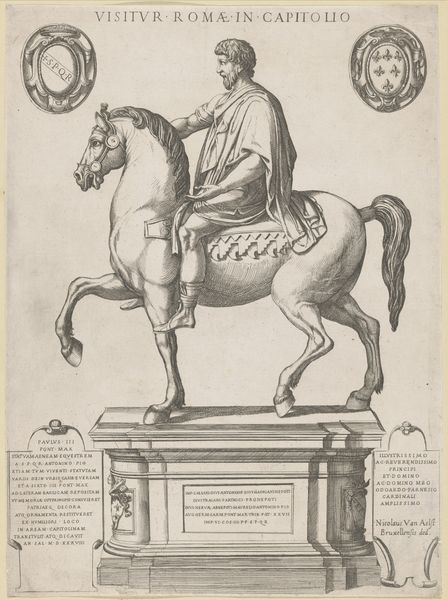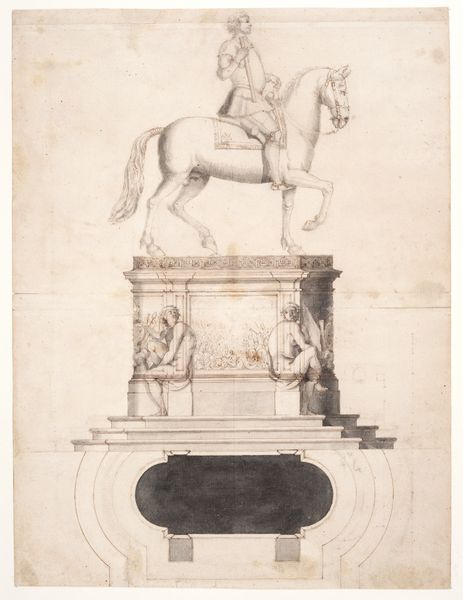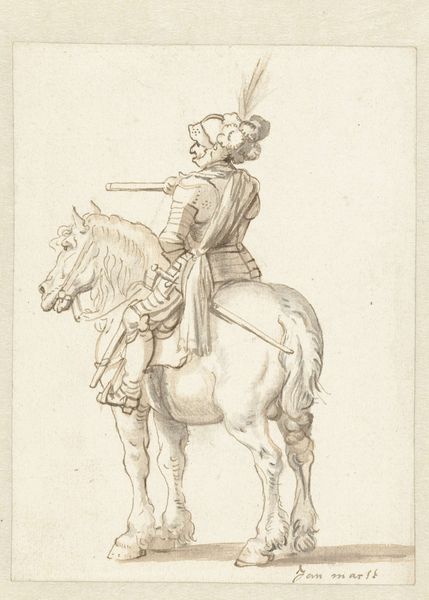
Ruiterstandbeeld van Willem I, prins van Oranje, op het Noordeinde te Den Haag 1845 - 1849
0:00
0:00
print, bronze, sculpture, engraving
#
portrait
# print
#
landscape
#
bronze
#
sculpture
#
academic-art
#
engraving
#
realism
Dimensions: height 263 mm, width 166 mm
Copyright: Rijks Museum: Open Domain
This print depicts the equestrian statue of William I of Orange, located on the Noordeinde in The Hague, Netherlands. The anonymous artist, through this image, presents a potent symbol of Dutch national identity. Equestrian statues, a tradition dating back to antiquity, were often commissioned by the state to commemorate military leaders. This particular statue embodies the values of Dutch independence and resilience. The choice of William of Orange, a key figure in the Dutch revolt against Spanish rule, reinforces this. The three crests displayed at the bottom reflect the Dutch provinces that resisted Spanish rule, and the horse symbolizes power, control, and nobility. As historians, we can delve deeper into the cultural context of this image by consulting archives, political pamphlets, and other historical documents from the period. Only through understanding the institutions and social currents surrounding its creation can we truly understand the meaning of this artwork.
Comments
No comments
Be the first to comment and join the conversation on the ultimate creative platform.
